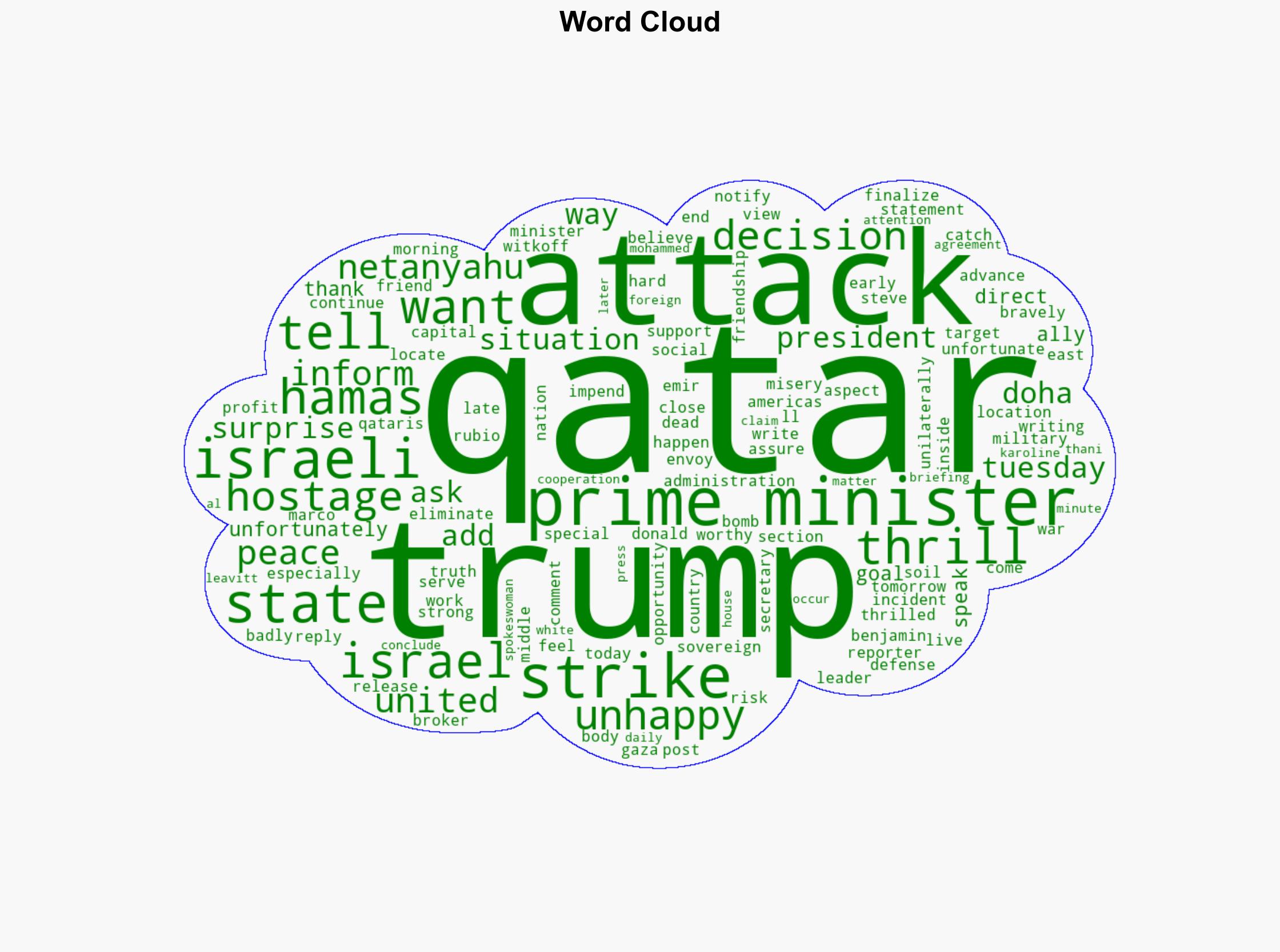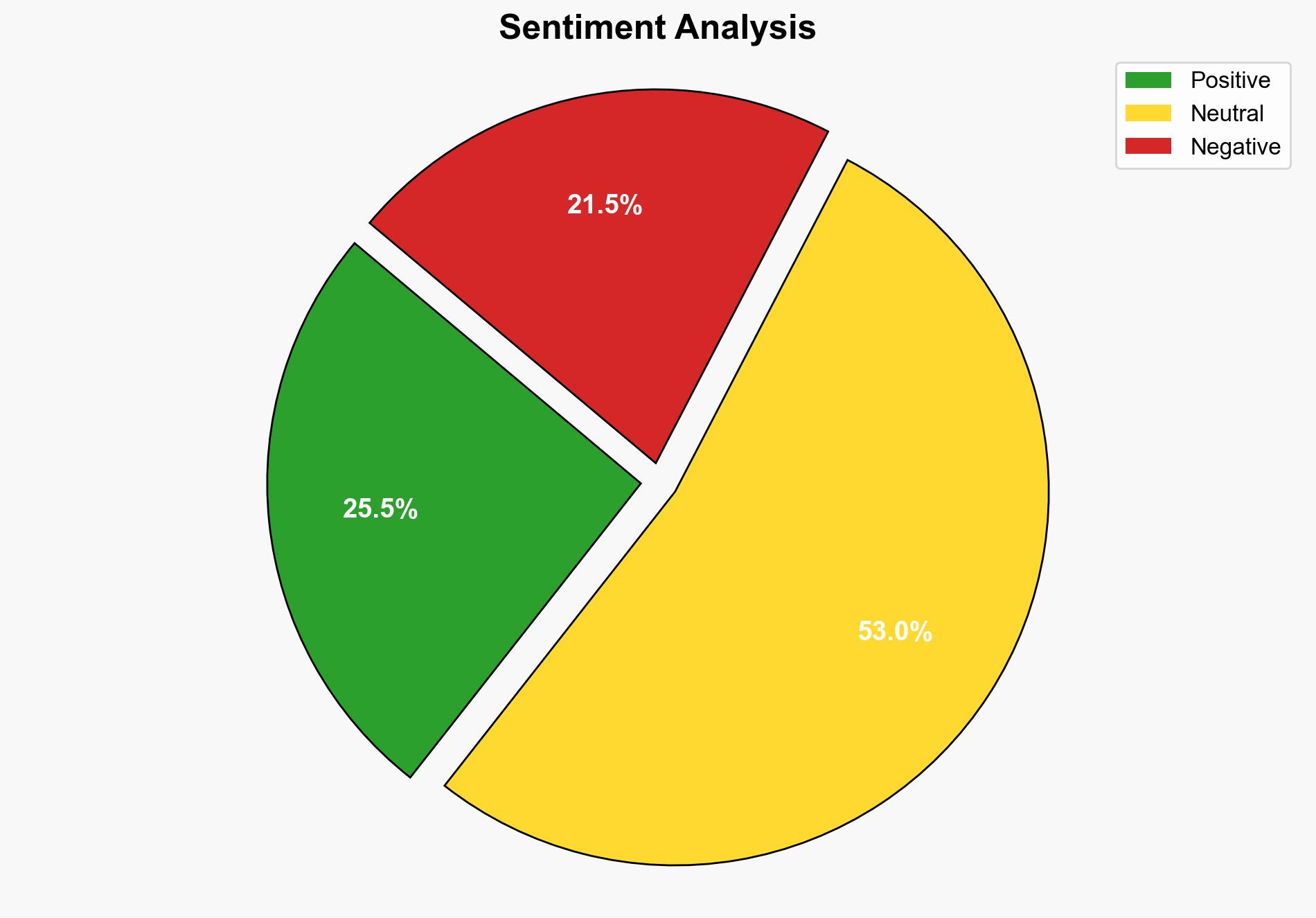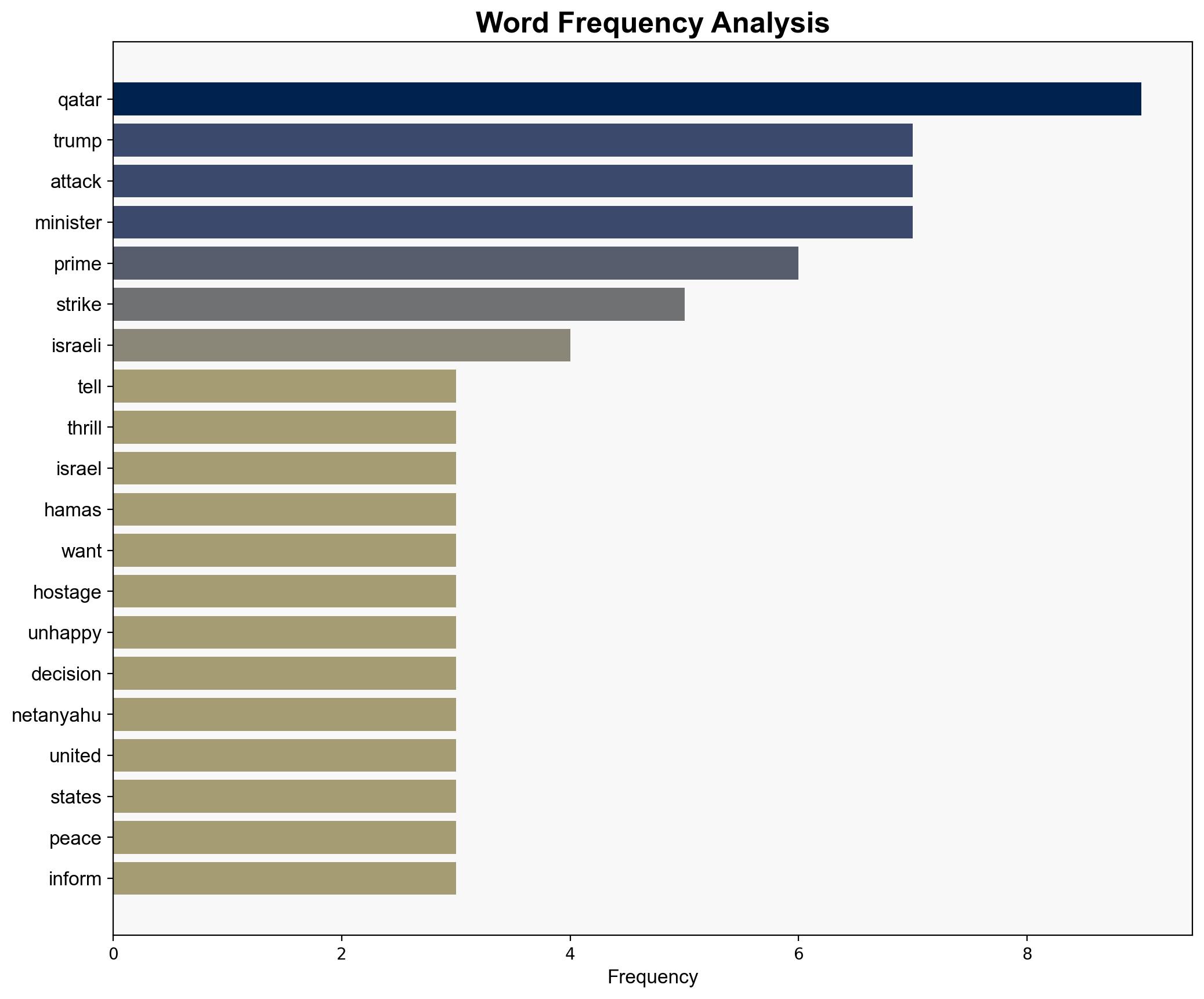Trump Im not thrilled about the Israeli strike in Qatar – Israelnationalnews.com
Published on: 2025-09-10
Intelligence Report: Trump Im not thrilled about the Israeli strike in Qatar – Israelnationalnews.com
1. BLUF (Bottom Line Up Front)
The most supported hypothesis is that the Israeli strike in Qatar was a unilateral decision by Israel, potentially straining U.S.-Qatar relations and complicating U.S. diplomatic efforts in the region. Confidence level: Moderate. Recommended action: Engage in diplomatic discussions with both Israel and Qatar to mitigate tensions and clarify U.S. positions.
2. Competing Hypotheses
1. **Hypothesis 1:** Israel conducted the strike in Qatar unilaterally, without prior comprehensive coordination with the U.S., leading to diplomatic tensions.
– **Supporting Evidence:** Trump’s statement of surprise and lack of prior notification to the U.S. military suggests unilateral action by Israel.
– **Contradictory Evidence:** The U.S. was informed shortly before the strike, indicating some level of communication.
2. **Hypothesis 2:** The strike was a coordinated effort between Israel and the U.S., but communication breakdowns led to perceived unilateral action.
– **Supporting Evidence:** The U.S. envoy’s late notification to Qatar implies some level of coordination.
– **Contradictory Evidence:** Trump’s public dissatisfaction and the lack of a clear U.S. stance suggest a lack of coordination.
3. Key Assumptions and Red Flags
– **Assumptions:** The U.S. aims to maintain strong alliances with both Israel and Qatar. Israel’s actions are assumed to align with broader U.S. strategic goals.
– **Red Flags:** Inconsistent timelines regarding notification and communication between the U.S., Israel, and Qatar. Potential cognitive bias in assuming Israel’s actions always align with U.S. interests.
– **Deception Indicators:** Public statements may be masking deeper strategic intentions or miscommunications.
4. Implications and Strategic Risks
– **Geopolitical Risks:** Potential deterioration of U.S.-Qatar relations, impacting military and economic cooperation.
– **Regional Stability:** Escalation of tensions in the Middle East, complicating peace efforts and counter-terrorism operations.
– **Diplomatic Fallout:** Strain on U.S.-Israel relations if perceived as unsupportive or misaligned.
5. Recommendations and Outlook
- Initiate diplomatic dialogue with Qatar to reaffirm U.S. commitment to bilateral relations and clarify the situation.
- Engage with Israel to understand the strategic rationale behind the strike and ensure future coordination.
- Scenario Projections:
– **Best Case:** Diplomatic efforts lead to a trilateral understanding, strengthening regional alliances.
– **Worst Case:** Continued miscommunications lead to a breakdown in U.S.-Qatar relations, affecting military operations.
– **Most Likely:** Diplomatic tensions persist but are managed through ongoing dialogue.
6. Key Individuals and Entities
– Donald Trump
– Benjamin Netanyahu
– Steve Witkoff
– Mohammed Al Thani
– Marco Rubio
7. Thematic Tags
national security threats, cybersecurity, counter-terrorism, regional focus




